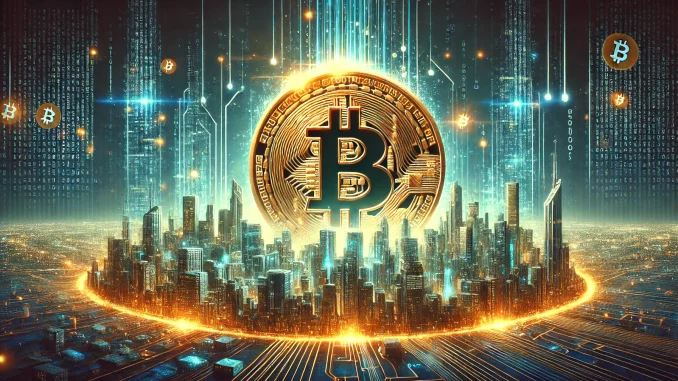
For decades, the U.S. dollar has been the world’s primary reserve currency, functioning as the preferred currency for international commerce, national wealth storage, and the pricing of essential commodities. However, as the trust in fiat systems diminishes and digital assets gain momentum, a provocative question is gathering traction in economic circles, crypto forums, and global summits:
**Can a cryptocurrency become the world’s next reserve currency?**
It is an unconventional concept. Nevertheless, it is prudent to conduct a comprehensive analysis in light of inflationary concerns, geopolitical fragmentation, and the rapid advancement of technology. Is the world poised for a **global crypto reserve currency**? If so, what would it resemble and who would provide their support?
💱 What is the precise definition of a reserve currency?
A **reserve currency** is a currency that is maintained in substantial proportions by governments and institutions to assure currency stability and facilitate trade. Its unique attributes consist of:
* **Deep capital markets** * **Robust, stable institutions** * **Widespread use in trade and finance**
At present, the **U.S. dollar** accounts for over 58% of global reserves, making it the dominant currency. Followed by the euro, yen, and yuan. Nevertheless, cryptocurrencies are increasingly gaining traction in the discourse—not as substitutes, but as complements or alternatives.
🌐 The Argument in Support of a Global Crypto Reserve Currency
1. **Decentralization = Trustless Stability**
Numerous cryptocurrencies are **decentralized**, in contrast to fiat currencies, which are dependent on governments and central banks. A crypto reserve currency would be immune to the inflationary policy, geopolitical agenda, or political instability of a single nation.
This may be of interest to countries and institutions that are attempting to reduce sovereign risk.
2. **Neutral and Borderless**
The proprietorship of a global crypto reserve currency would not be limited to a single nation. It would be a neutral asset that facilitates international trade in a truly global context, independent of political control.
This makes it potentially appealing to emerging markets that are interested in reducing their reliance on the euro or the U.S. dollar.
3. **Transparent, programmable, and rapid**
Blockchains offer auditable settlements that are virtually instantaneous. When implemented by central banks or multilateral institutions, a crypto reserve currency has the potential to reduce friction in global payments, **decrease costs**, and **increase accountability** in financial flows.
🧱 What would be necessary?
In order to qualify as a global reserve asset, a cryptocurrency must satisfy a number of criteria:
This implies that **Bitcoin**, despite its market capitalization dominance, may not meet all criteria. A **stablecoin**, a **basket-backed asset**, or a **tokenized SDR** (Special Drawing Rights) may be more practical in the short term.
Several criteria must be satisfied for a cryptocurrency to be designated as a global reserve asset:
Implication Requirement
Price stability It is imperative that it remain immune to extreme volatility (currently, Bitcoin is likely to be excluded).
Regulatory acceptability across the globe It is imperative that governments reach a consensus regarding its legal status and application.
Deep liquidity and market depth It must be readily traded in vast quantities.
Central banks and sovereign wealth funds must be willing to maintain institutional trust.
Financial system interoperability It is necessary to integrate with the conventional banking infrastructure.
🏛️ Who Has the Potential to Lead the Charge?
**IMF**: It is feasible to investigate a **digital SDR** that is tokenized and blockchain-based, as it serves as a neutral reserve asset.
* **Nations of the BRICS bloc**: Are reportedly in the process of developing alternatives to the dollar; a blockchain-based solution could be appealing to alignments outside of the Western world.
* **Private consortiums**: These entities, such as those responsible for the former Libra (now Diem), may endeavor to reestablish themselves through the implementation of improved conformity and decentralization.
* **Decentralized DAOs**: In a scenario that is truly crypto-native, a decentralized autonomous organization (DAO) could oversee a global reserve token that is built on trustless code.
⚖️ Ongoing Challenges
However, substantial challenges continue to exist, regardless of the existence of potential:
* **Volatility**: The majority of cryptocurrencies are too volatile to serve as dependable reserves.
* **Geopolitical resistance**: Dominant economies may be hesitant to relinquish control.
* **Technical challenges**: The process of scaling blockchains to accommodate global volume is still in progress.
* **Regulatory fragmentation**: At present, there is no global consensus on the treatment of cryptocurrency.
And perhaps most importantly, **trust**—central banks may be reticent to establish their monetary policy on code that was authored by anonymous developers or administered by unverified DAOs.
Do hybrid models have a higher likelihood of success in the future?
**Hybrid systems** may emerge in place of a single crypto reserve currency:
* **Tokenized fiat reserves are issued by public blockchains**. * **CBDCs that are interoperable and coordinated across borders**.
* **Stablecoins** that are backed by commodities or combinations of fiat assets.
* **Multi-chain global settlement systems**, in which crypto functions as a critical infrastructural component without substituting national currencies.
Final Thoughts: Are You Well-Ready?
Consequently, is the world adequately equipped?
**In a technological context, without a doubt. Not yet, both economically and politically.** However, the degree of preparedness may not be a determining factor if demand increases. The demand for a **neutral, transnational, programmable reserve asset** will only continue to increase as cross-border tensions and fiat systems experience instability.
Indeed, the world may be on the brink of a **crypto-reserved reality** if crypto can overcome its volatility, scalability, and trust challenges, and if global institutions are willing to collaborate.
**What are your opinions? Is it feasible for the succeeding global reserve currency to be crypto-native, decentralized, and digital? Conversely, will nation-states intensify their dependence on fiat and central banks? Thank you for sharing your thoughts in the comments section below. **
Leave a Reply